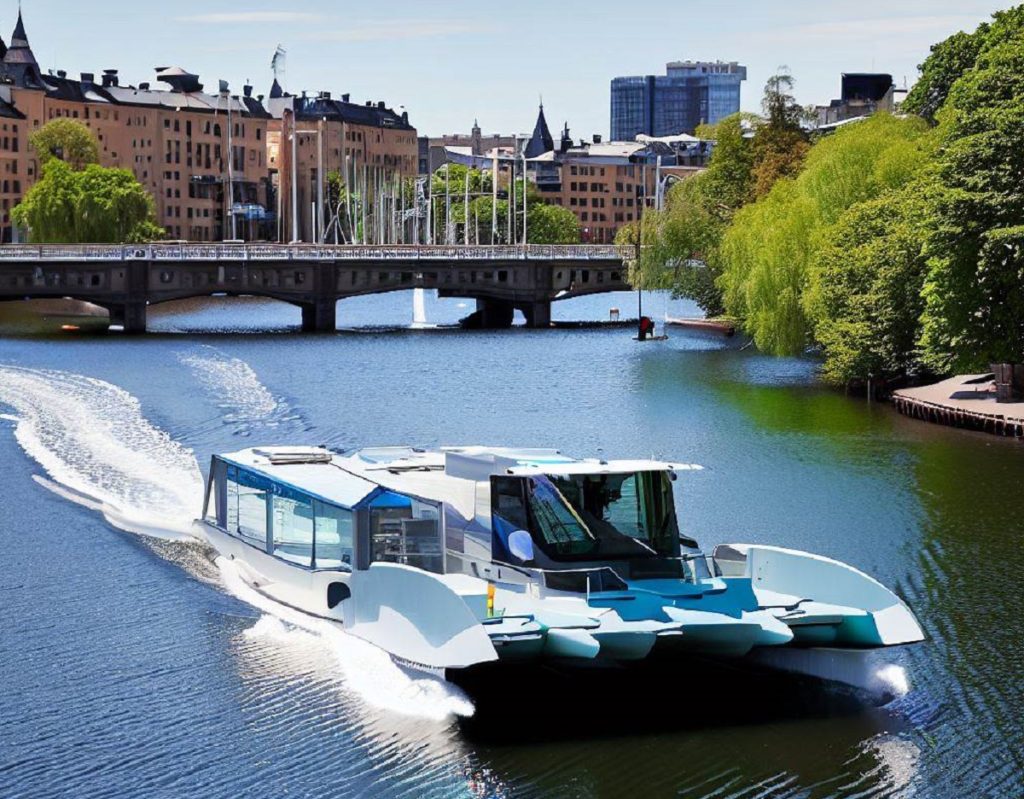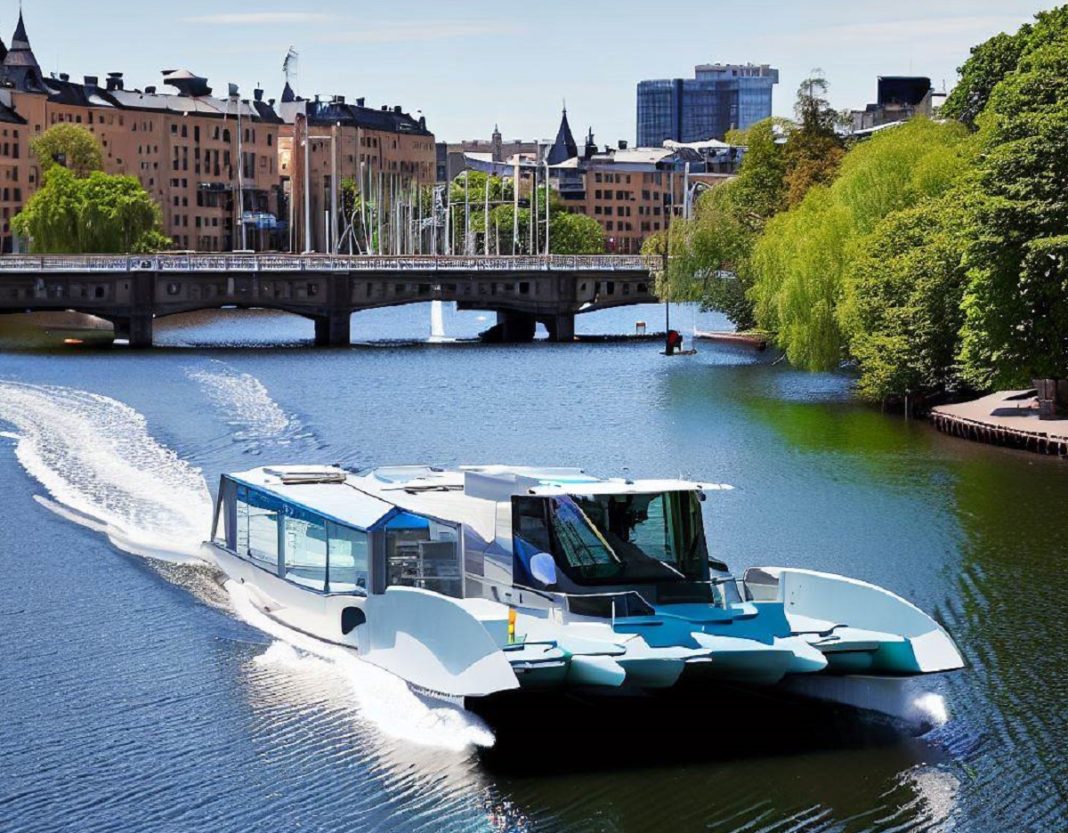Stockholm has become the first city in the world to launch a self-driving, fully-electric commercial passenger ferry. The ferry, an electric catamaran with a capacity of 25 people, will operate between Kungsholmen and Søder Mellarstrand in Stockholm with 15 hours of continuous electric operation every day.

The vessel is part of a project aimed at creating more sustainable urban mobility and attracting international interest due to its green profile. The project started at the Norwegian University of Science and Technology (NTNU) in Trondheim, which led to the founding of Zeabuz, a Norwegian technology company. Zeabuz provided the autonomous system for the passenger ferry.
The boat will be guided by a crew consisting of a captain, while the trip will be monitored from a control room. The aim is to control everything from the control room in the long term. The ferry has an open, covered passenger deck with boarding and disembarking at both ends and is 12 meters long. The boat has a crew of one person in addition to a control room on land.
The vessel was built by the Brødrene Aa Shipyard, which has a history dating back to 1947. The shipyard has created novel building methods and constructed energy-efficient carbon fiber vessels.
The boat’s green profile is attracting international interest, as around 90 percent of all urban areas are located by waterways, which are underutilized due to extensive emissions and high operating costs. With autonomy, operating costs can be lowered enough to make the ferry commercially profitable, and a departure frequency that is adapted to market needs can be offered.
The project is seen as a green transport revolution at sea, as self-driving technology can help to solve problems related to congestion, lack of capacity, and environmental pollution. The project is expected to create more sustainable urban mobility and increase the utilization of waterways as a means of transport.
According to interestingengineering















